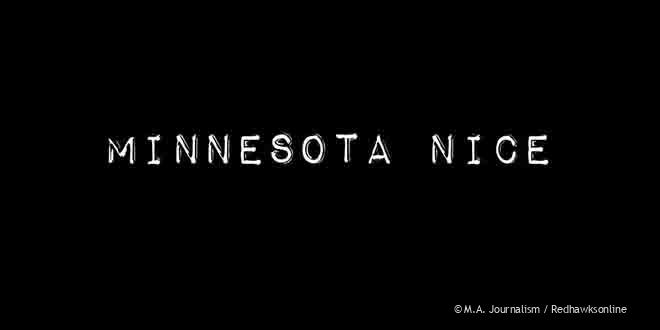Passive aggressiveness, often confused with politeness, can be the most ineffective and harmful response to a problem
Sarcasm, the silent treatment, blame, avoidance, social exclusion-passive aggressive behavior comes in many shapes and forms, and many fall victim to it daily. Although a passive aggressive friend, teacher or email may irk someone to no end, this expression of emotion is often viewed as a more digestible and acceptable form of anger. However, it is an unhealthy technique for expressing emotion, as there is no effective communication between the perpetrator and the victim.
Harmful and ineffective responsive behavior to a conflict can fall into three categories: aggression, passiveness and passive aggression.
Aggression often involves blaming the victim and is expressed with actions such as yelling, name calling or physical violence. It causes the receiver of the aggression to either shut down or become defensive.
On the opposite side of the spectrum, passive behavior is motivated by an avoidance of all conflict, performed by ignoring the problem or not vocalizing the concern. Passiveness will never address the problem in the first place, only leading to an increase in negative emotion within the perpetrator.
Together, aggression and passiveness make for a dangerous cocktail of passive aggressiveness.
According to the NYU Langone Medical Center, a passive aggressive person is one who “may appear to comply or act appropriately, but actually behaves negatively and passively resists.”
Frequently, blessings come with a curse, and living as “Midwestern-nice” comes with an indirect form of anger.
“Minnesotans are known to be a little more passive aggressive because of the strong Scandinavian ties, and [Minnehaha] would be a representation of that too,” said Principal Jason Wenschlag. “There might even be a stronger desire for harmony in a Christian school, where people are often treated with a high level of respect, care, patience…and if someone does disagree or is unhappy, there might be the propensity to be more indirect.”
Guidance counselor Kristin Overton believes that indirect displays of aggression are not only ineffective, but are also done in acts of selfishness.
“People are doing it to protect themselves, so they look like they’re being kind,” said Overton, “but also, they justify it by thinking that they don’t want to hurt the other person’s feelings.”
This may occur when someone may feel inclined to be passive aggressive when the conflict could directly impact their relationship with a figure of authority.
For example, an athlete that expresses a problem involving their coach could risk being kicked off the team, and an employee who has an issue with their salary could risk being fired by their boss.
In such a situation, Overton is not completely opposed to the use of passive aggressive behavior and believes that one must evaluate the situation in order to make the right behavioral move.
“I think you have to really weigh your relationship with the person and what the outcome of saying something very forward might be,” Overton said. “If it is something like your employment that would be at risk, I think it sort of goes back to what you learned as a child, that sometimes a white lie is okay. It’s kind of that same idea where if it’s not going to hurt anything by being passive aggressive, then maybe it is okay.”
Despite the situation, however, Overton believes that assertiveness is always a more effective, healthy route to expressing a concern.
Assertiveness can be defined as expressing honest feelings in a respectful manner that won’t cause either party to feel the need to be defensive.
Guidance counselor Christine Paton used the innocent example of a student disliking their seat in a classroom to explain how a passive aggressive student versus an assertive student would handle the conflict with their authoritative figure, the teacher.
“The passive aggressive [method] would be to talk to all my peers about my teacher, about how he’s a jerk because he put me in this seat,” said Paton. “Maybe I put something on social media because I want to get at him because I’m upset, but that teacher never knows I’m upset because I wasn’t assertive.”
Paton continued by describing how an assertive student would act, using “I” statements as opposed to “you” statements as a means to keep the other person from becoming defensive.
“This would be an assertive way to handle it,” continued Paton. “‘I want to talk to you about where I’m sitting in class, I’m really struggling, I’m distracted. I really need to let you know because it’s affecting the way I’m learning in class, and I’m wondering if you can help me do something about it.’ I’m not attacking the teacher saying, ‘You put me in this seat, I hate this class, you’re a horrible teacher.’ That would be the aggressive route.”
Expressing strong emotions in an indirect way may initially seem like the more polite thing to do.
However, passive aggressiveness leads to no where near a productive conversation, and instead, may lead to feelings of confusion or manipulation.
“I think people will respect you more in the long run if you aren’t passive aggressive, if you could just speak candidly,” said Overton. “Being able to do that in a thoughtful and in a constructive way could have more impact than avoiding something in the long run. That way, you can be pretty forward about it but in a way that could actually bring about healing.”

